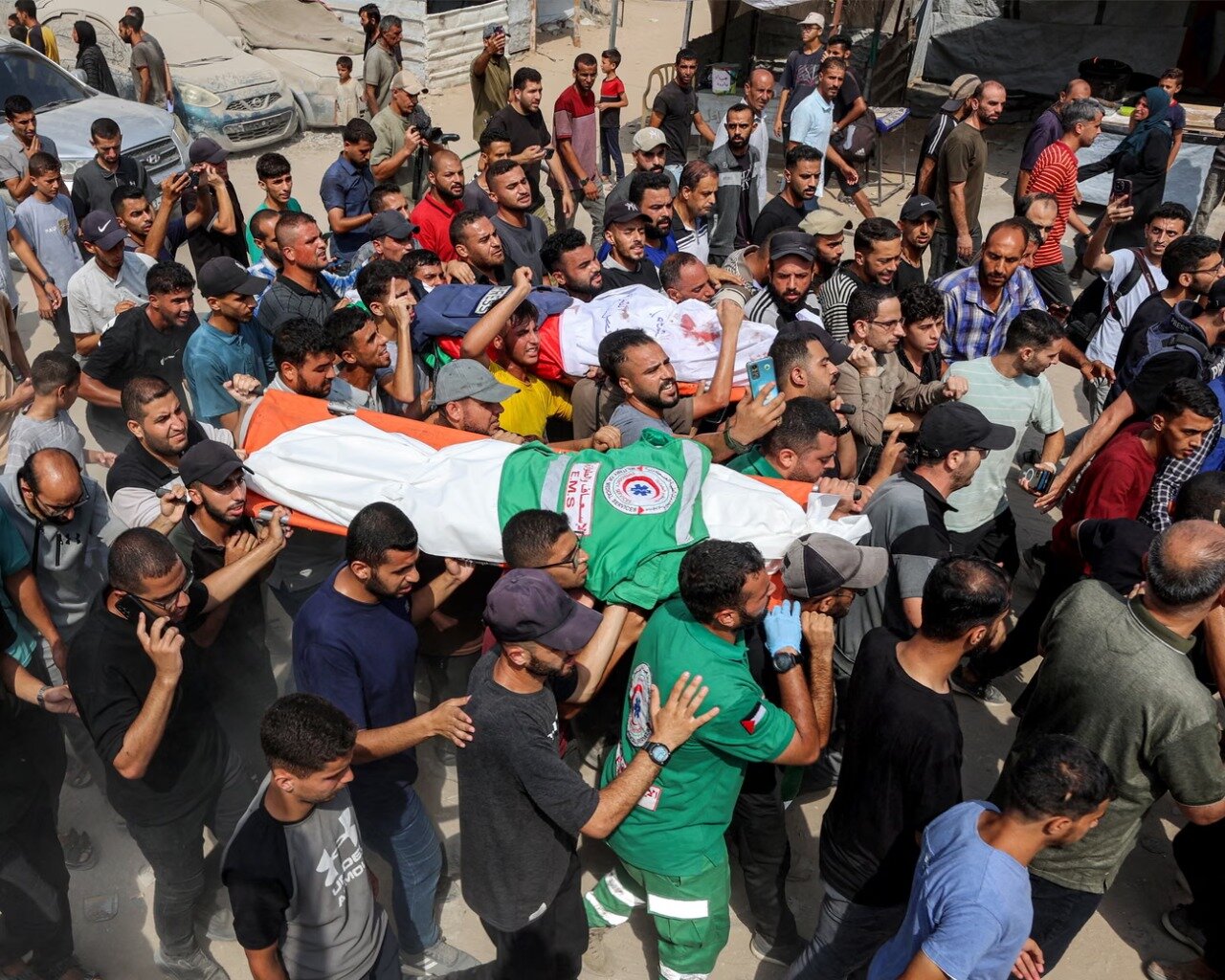War on witnesses: Israel’s deadly campaign to silence Gaza’s journalists
Global journalists condemn Israel’s killing of Gaza reporters in Tehran Times interviews

TEHRAN — Since launching its war on Gaza in October 2023, Israel has pursued a systematic campaign to silence the media and obscure the reality of what many observers call a genocide in the besieged enclave.
The latest escalation came late Sunday, when an Israeli strike targeted a journalists’ tent outside al-Shifa Hospital in Gaza City, killing five members of the Qatar-based Al Jazeera Media Network: correspondents Anas al-Sharif and Mohammed Qreiqeh, cameramen Ibrahim Zaher and Moamen Aliwa, and their assistant Mohammed Noufal.
Authorities in Gaza report that nearly 270 journalists and media workers have been killed since October 2023 — making this the deadliest conflict for media workers ever recorded. Journalists in Gaza, especially in the north, have served as the eyes and ears of the world, documenting starvation, mass displacement, and the destruction of civilian life.
The killings come amid Israel’s preparations to expand its military operations, seize Gaza City, and displace nearly a million Palestinians. By targeting reporters, many journalists say, Israel is attempting to erase evidence of its actions and prevent coverage of fresh atrocities.
Global outrage from the press community
Journalists from across the globe have condemned Israel’s killing of the five journalists in Gaza in interviews with the Tehran times. From Bulgaria, Dr. Tania Glouhtcheva, Head of the International Department at DUMA newspaper, condemned the killings as “shameful” and accused Israel of fabricating claims that the journalists were “disguised terrorists” to justify their deaths. “Freedom of speech is becoming a myth,” she said, calling it part of Israel’s “thirst for more and more blood.”

Slovak university lecturer, activist, commentator, and publicist, Lucia Hubinska, described Gaza as “a war zone almost entirely devoid of international press” due to Israel’s systematic exclusion. “By 2025, the average stands at 13 journalists killed every month — making this the deadliest conflict for media workers ever recorded,” she said. “It is genocide — a deliberate erasure of a people, their history, and even those who risk everything to bear witness.”
Mojca Pisek-Mika from Slovenia called the killings “a blatant attack on press freedom and a desperate effort to silence the truth about [Israel’s] genocidal campaign.”
From Indonesia, Mario Pascal stressed that “the killing of five journalists in Gaza is a serious violation of international law… Such actions weaken press freedom and prevent the public from getting accurate information.”
Malaysian editor Joseph Khor warned that killing even one journalist “is already far too many,” calling such acts “tantamount to committing a war crime.”
Brazilian reporter Guilherme Oblasser Paladino called the killings “another explicit example of the genocidal mindset of the current Israeli government” and urged global solidarity with Palestinians.
Argentinian journalist Silvina Pachelo said: “Gaza is not a ‘humanitarian crisis.’ It’s genocide… Silence and indifference are accomplices.”
Russian journalist Maxim Nachinov said such attacks “cannot be justified by any military logic,” while Kazakhstan’s Ilyas Mashanlo warned the deaths were “a tragedy not just for their families but for freedom of speech worldwide.”
From Pakistan, Haseeb ur Rehman called the strike “a stark and tragic illustration” of Israel’s violations of international humanitarian law, urging the international community to “hold Israel accountable” and to make journalist protection “an absolute priority.”
Jordanian journalist Maen Salam Albelbese described the killings as “a message of criminal terrorism to the entire world” and evidence of “the collapse of the system of international values and laws.”

Anas al-Sharif with his daughter, Sham, and son, Salah
Tunisian journalist Karim Wannes linked the attack to a broader strategy, saying: “Like any criminal colonial regime, the Zionist enemy cannot tolerate the continued intensive media coverage of its crimes… the assassination of martyred journalists is both expected and logical in the context of this horrific genocidal war.”
Bangladeshi reporter Md Shariful Islam called the killings “an attack on truth itself,” while Mongolian journalist Isu Tuvshin reflected on the irony of “a nation born from [the trauma of the Holocaust] inflicting mass destruction on Gaza.”
Danielle John, a journalist at TTT Limited, Trinidad and Tobago, stressed that “press freedom and the protection of journalists… are vital to democracy and human rights.” Saint Lucian journalist Casey Jerson condemned the attacks as violations of human rights and international law “that suppress the stories of suffering Palestinians.”
Jamaican senior journalist Dwayne Anderson summed up the grief of the profession: “At a time like this, journalists are needed more than ever to tell the world the truth of the atrocities. Instead, they are being cut down. It’s painful.”
The killing of Gaza’s journalists is not an accident of war — it is part of a calculated effort to eliminate witnesses and control the narrative. For many of the world’s journalists, the attack on their colleagues is not just an assault on the press, but on truth itself.
Leave a Comment